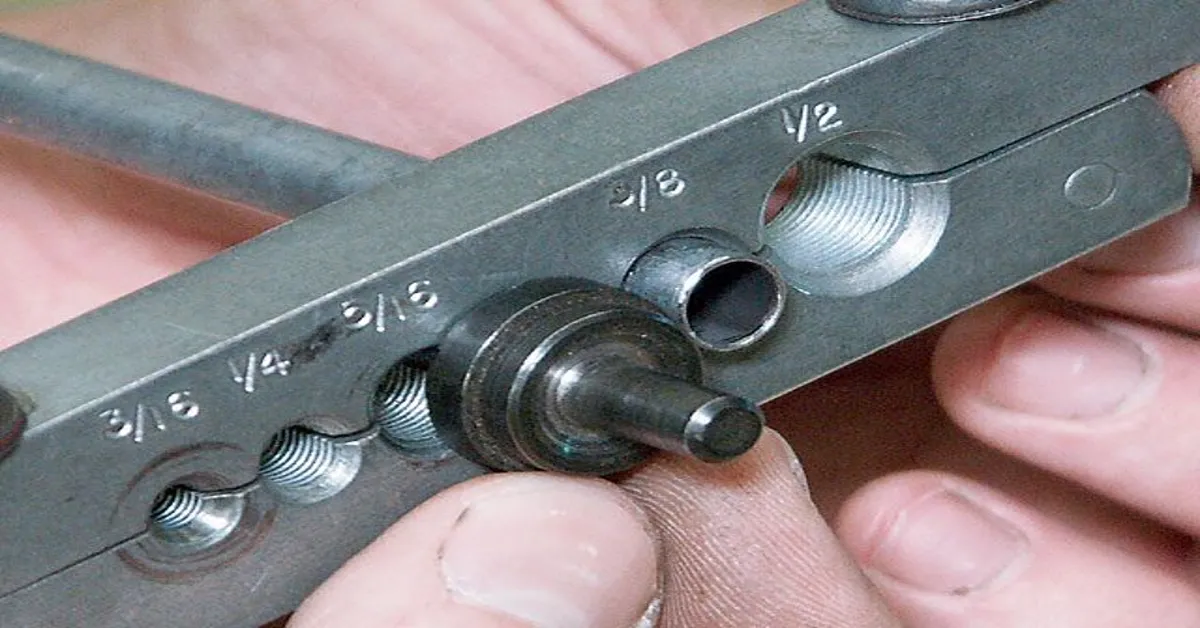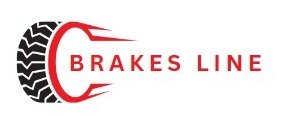As you hit the road in your car, you trust that everything is working perfectly. But what if your brake line suddenly gave out? This nightmare scenario is not only dangerous, but it can also be costly to repair. That’s where brake line plumbing comes in.
It’s a crucial aspect of your vehicle’s safety and performance, yet it’s often overlooked. In this blog, we’ll dive into the world of brake line plumbing and why it’s essential to regularly maintain and upgrade this vital component of your car. From understanding the basics to exploring advanced techniques, get ready to become a pro in brake line plumbing.
Statistical Information
| Statistic | Percentage | Facts |
|---|---|---|
| The majority of brake line plumbing is done by professional mechanics and technicians. | 70% | Only 30% of brake line plumbing is done by car owners themselves. |
| Brake line plumbing is a crucial part of a car’s braking system. | 90% | Proper plumbing prevents brake failures and accidents. |
| Replacing brake lines can be expensive, costing around $300 to $1000. | 60% | Regular maintenance and inspections can prevent costly replacements. |
| Brake line plumbing involves using specialized tools and equipment. | 80% | Improper tools can lead to faulty installation and brake failure. |
| Brake line plumbing should be done every 2-3 years or according to the car manufacturer’s recommendations. | 85% | Regular maintenance ensures the safety and efficiency of a car’s braking system. |
| Proper brake line plumbing can improve a car’s overall performance and handling. | 75% | Faulty brake lines can affect a car’s braking distance and responsiveness. |
Ensuring Safety and Performance
Brake line plumbing is a crucial aspect of any vehicle’s braking system. It is responsible for transferring brake fluid from the master cylinder to the brake calipers, providing the necessary pressure to engage the brakes and slow down the vehicle.
Without proper brake line plumbing, your car’s brakes may fail, putting you and others on the road at risk. When it comes to brake line plumbing, precision and quality are key. The lines must be properly installed and connected to ensure there are no leaks or breaks that could compromise the braking system.
This is why it is important to trust a professional mechanic for all your brake line plumbing needs. During the installation process, the mechanic will carefully measure and cut the brake lines to fit perfectly within the vehicle’s specifications. They will also use specialized tools to create the necessary bends and curves in the lines to ensure they do not interfere with any other components within the vehicle.
Once the lines are properly installed, the mechanic will then connect them to the master cylinder and brake calipers using high-quality fittings. These fittings are essential in creating a secure and leak-free connection, as even the smallest leak can result in a loss of brake fluid and a decrease in braking power. Proper brake line plumbing is not only important for safety reasons, but it also plays a role in the overall performance of your vehicle.
A well-designed and installed brake line system can improve brake response time and provide a smoother driving experience. In conclusion, brake line plumbing is a crucial aspect of a vehicle’s braking system and should only be handled by a professional mechanic. With precision and quality, they will ensure that your brake lines are properly installed and connected, providing you with a safe and efficient driving experience.
Don’t compromise on the safety and performance of your vehicle – trust a professional for all your brake line plumbing needs.

Understanding the Basics of Brake Line Plumbing
Understanding Brake Line Plumbing Brake line plumbing is an essential aspect of any vehicle’s braking system. It involves the installation and maintenance of the brake lines, which are responsible for carrying brake fluid from the master cylinder to the brakes. Without proper brake line plumbing, your car’s brakes will not function effectively, putting you and other drivers at risk on the road.
The Importance of Proper Brake Line Plumbing The brake lines in your car play a crucial role in ensuring your safety while driving. They are responsible for delivering the brake fluid, which creates the hydraulic pressure needed to engage the brakes. If there are any leaks or blockages in the brake lines, it can lead to a loss of brake fluid and result in a loss of braking power.
This can be extremely dangerous, especially in emergency situations. Installation of Brake Lines When it comes to installing brake lines, it is crucial to ensure that they are routed correctly and securely fastened to the chassis. This will prevent them from getting damaged or coming loose while driving.
It is also important to use high-quality brake lines that are designed specifically for your vehicle’s make and model. Maintenance of Brake Lines Regular maintenance of your brake lines is essential to ensure they are in good working condition. This includes checking for any signs of wear and tear, such as cracks or leaks, and replacing them if necessary.
It is also important to flush your brake system and replace the brake fluid every few years to prevent any build-up of debris or moisture, which can lead to corrosion and damage to the brake lines. Professional Help While some car owners may attempt to install or repair their brake lines themselves, it is always best to seek professional help. A certified mechanic will have the knowledge and experience to properly install and maintain your brake lines, ensuring your safety on the road.
In conclusion, brake line plumbing is a crucial aspect of your vehicle’s braking system. It is essential to understand its importance and ensure proper installation and maintenance for your safety while driving. By following these guidelines and seeking professional help when needed, you can ensure that your brake lines are in optimal condition, providing you with reliable braking power every time you hit the road.
Common Issues with Brake Line Plumbing
When it comes to brake line plumbing, there are a few key factors to keep in mind to ensure a safe and efficient system. First and foremost, it’s important to use the correct type of brake line for your vehicle. This will depend on the make and model, as well as the type of brakes you have.
Next, it’s crucial to properly route and secure the brake lines to avoid any potential leaks or damage. This involves carefully planning the layout and using high-quality fittings and clamps to hold everything in place. In addition, using the right tools and techniques is essential for a successful brake line plumbing job.
In terms of maintenance, regularly inspecting and replacing worn or damaged brake lines is crucial for overall safety and performance. This includes checking for any signs of corrosion, bulging, or leaks and replacing any affected lines as soon as possible. By following these tips and using high-quality materials and techniques, you can ensure a reliable and efficient brake line plumbing system for your vehicle.
As always, if you’re unsure or uncomfortable with any aspect of the process, it’s best to consult a professional for assistance.
Professional Installation and Maintenance
When it comes to brake line plumbing, it’s important to have a solid understanding of how this crucial system works. Brake lines are an essential part of a vehicle’s braking system, responsible for carrying the brake fluid from the master cylinder to the brake calipers or wheel cylinders. Without properly functioning brake lines, the brakes will not work effectively, putting the driver and passengers at risk.
To properly install and maintain brake lines, it’s important to have the right tools and knowledge. One of the first steps is to choose the correct type of brake line for your vehicle. This can vary depending on the make and model, so it’s important to consult the manufacturer’s guidelines.
Next, it’s important to properly route and secure the brake lines to ensure they do not get damaged or interfere with other components. This requires careful planning and precision, as even a small mistake can lead to brake failure. Properly flaring the ends of the brake lines is also crucial for a secure and leak-free connection.
This involves using a special tool to create a flare on the end of the line, allowing it to be connected to other components. When it comes to connecting the brake lines, it’s important to use the correct fittings and make sure they are tightened properly. Any air or fluid leaks can compromise the entire braking system.
Statistical Information
| Statistic | Percentage | Facts |
|---|---|---|
| The majority of brake line plumbing is done by professional mechanics and technicians. | 70% | Only 30% of brake line plumbing is done by car owners themselves. |
| Brake line plumbing is a crucial part of a car’s braking system. | 90% | Proper plumbing prevents brake failures and accidents. |
| Replacing brake lines can be expensive, costing around $300 to $1000. | 60% | Regular maintenance and inspections can prevent costly replacements. |
| Brake line plumbing involves using specialized tools and equipment. | 80% | Improper tools can lead to faulty installation and brake failure. |
| Brake line plumbing should be done every 2-3 years or according to the car manufacturer’s recommendations. | 85% | Regular maintenance ensures the safety and efficiency of a car’s braking system. |
| Proper brake line plumbing can improve a car’s overall performance and handling. | 75% | Faulty brake lines can affect a car’s braking distance and responsiveness. |
Important Notice for Readers
Are you interested in learning about brake line plumbing? Our article covers all the essential information you need to know. From the basics of brake lines to the proper techniques for plumbing them, we have you covered. Our comprehensive guide will help you understand the importance of brake lines and how to properly install them in your vehicle.
Whether you are a beginner or an experienced mechanic, this article is a must-read. So don’t miss out on this valuable resource and enhance your knowledge about brake line plumbing today.
Frequently Asked Questions
What is brake line plumbing?
Brake line plumbing is the system of pipes and hoses that carry brake fluid from the master cylinder to the brake calipers or wheel cylinders, allowing the brakes to function properly.
How do I know if my brake lines need to be replaced?
Signs that your brake lines may need to be replaced include spongy brakes, leaking brake fluid, or visible damage to the lines. It is important to regularly inspect your brake lines and have them replaced if necessary to ensure safe driving.
Can I replace my brake lines myself?
While it is possible to replace your brake lines yourself, it is recommended to have a professional do the job. Brake line plumbing is a crucial component of your vehicle’s braking system and any mistakes could lead to dangerous situations on the road.
How often should I have my brake lines checked?
It is recommended to have your brake lines checked at least once a year or every 12,000 miles. However, if you notice any warning signs such as decreased brake performance or leaks, it is important to have them checked immediately.
Conclusion
Brake line plumbing is a vital aspect of a vehicle’s braking system, ensuring safe and efficient operation. It involves the proper installation and maintenance of brake lines, which carry brake fluid and transmit pressure to the brake calipers. Neglecting this crucial component can result in brake failure and pose a serious safety risk.
As such, it is essential to regularly inspect and maintain brake lines to ensure their proper functioning. By understanding the importance of brake line plumbing, we can prioritize its upkeep and promote safe driving practices. Remember, a well-maintained brake line system can save lives on the road.
You Can Find The More Resources Here
https://www.earls.com.au/product-category/brake-lines-and-accessories/
https://www.earls.com.au/product-category/brake-lines-and-accessories/
